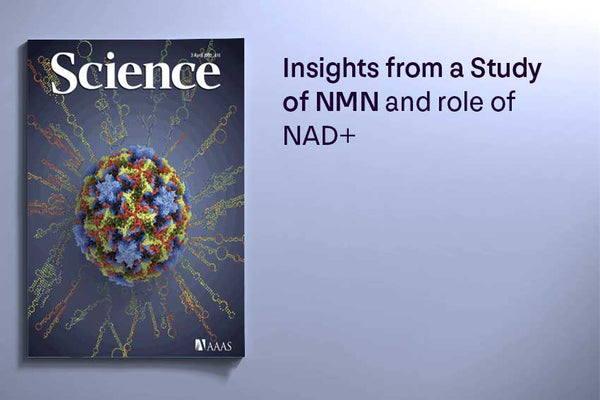
In 2015, a groundbreaking study on the role of Nicotinamide Adenine Dinucleotide (NAD⁺) in aging, metabolism, and neurodegeneration was published in the acclaimed academic journal, Science. The report, written by the renowned medical researcher, Dr. Eric Verdin, provides new insights into the medicinal promise of NAD⁺, its precursors, and the potential advancement in understanding age-related disorders and neurodegenerative diseases. The study can be found here.
NAD⁺ is a vital coenzyme present in all living cells, acting as a catalyst in reduction-oxidation (redox) reactions that help transfer electrons from one reaction to another. It also serves as a substrate for various essential enzymes such as the sirtuins and poly(adenosine diphosphate-ribose) polymerases. Such enzymes play substantial roles in regulating cellular health, repairing damaged DNA, and controlling inflammatory responses, thus underscoring NAD⁺'s crucial role in cellular biochemistry.
Dr. Verdin’s research observes that cellular concentrations of NAD⁺ change during the aging process. Monitoring and modulating this NAD⁺ usage or production has shown to have extending effects on health and lifespan. This changing NAD⁺ landscape during aging opens up many fascinating possibilities for therapeutic inventions, specifically in the fight against age-associated disorders and certain degenerative diseases.
A particular area of emphasis in the report is how NAD⁺ supplementation might represent a new therapeutic opportunity for aging and its associated disorders, more specifically, neurodegenerative diseases. Neurodegenerative diseases generally refer to conditions, often chronic and progressive, resulting from neuron damage or loss. These conditions include diseases like Alzheimer's, Parkinson's, and Huntington's, which are known to negatively impact mental functioning and quality of life as one gets older. The potential of NAD⁺-based therapies offers a promising avenue in these areas.
In conclusion, this 2015 study by Eric Verdin delves into the critical role of NAD⁺ in aging, metabolism, and neurodegeneration. By understanding how cellular NAD⁺ concentrations change during aging and how modulating its use or production can affect lifespan and health span, the groundwork is laid for new therapeutic strategies to combat aging and neurodegeneration.
Key Takeaways:
- The research paper, published in Science in 2015, discusses Nicotinamide Adenine Dinucleotide (NAD⁺) and its role in aging, metabolism, and neurodegeneration.
- NAD⁺ is a vital coenzyme present in all living cells, facilitating various crucial biochemical reactions.
- The cellular concentration of NAD⁺ changes during aging, and its modulation has a significant impact on health and/or lifespan.
- NAD(+) supplementation may provide a new therapeutic channel to combat neurodegenerative diseases and aging.
- The study provides promising insight into potential anti-aging therapies and treatment for neurodegenerative conditions.
